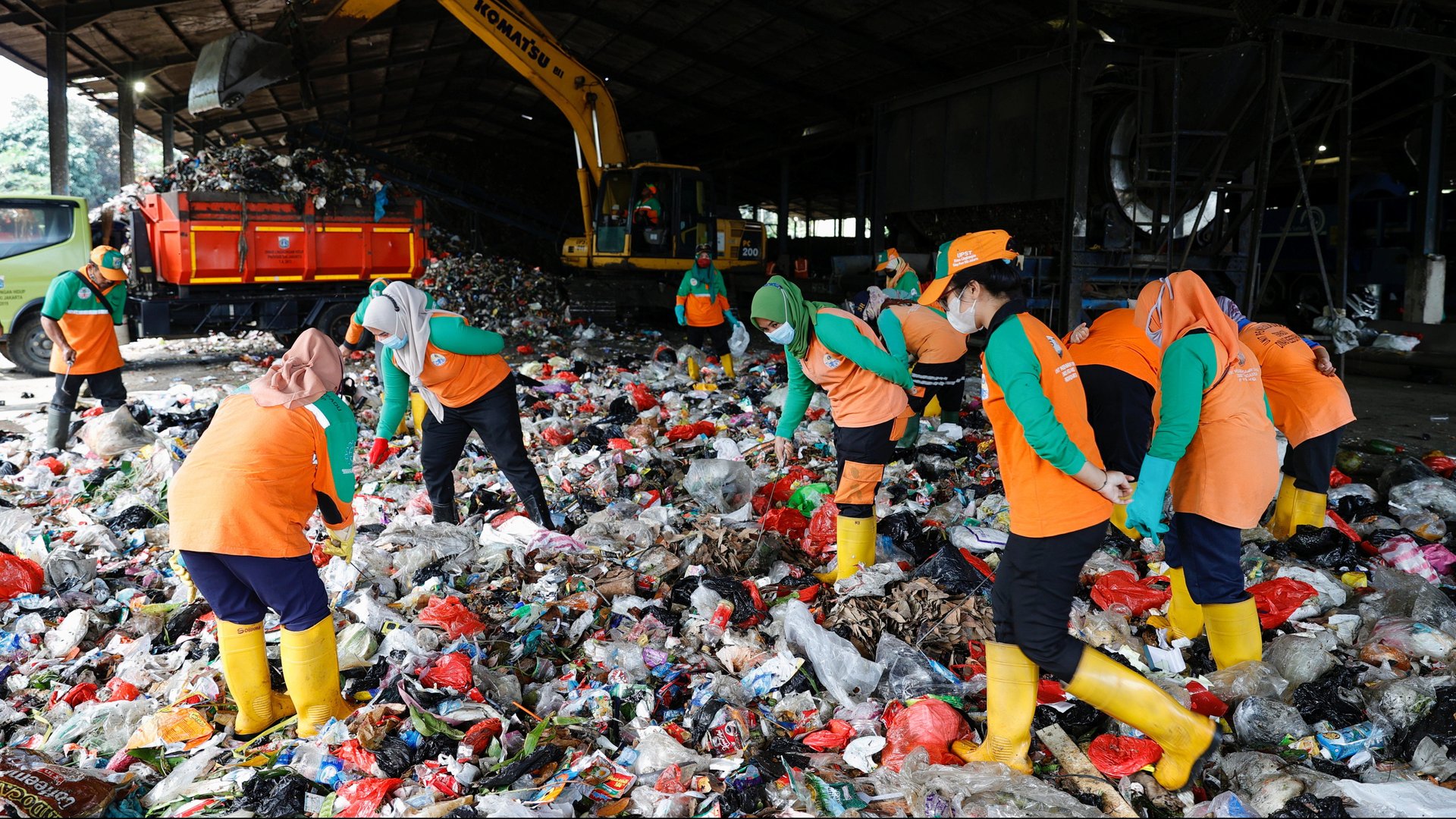Another big shipping line is refusing to export the West’s plastic waste
As of today (April 15), the world’s third largest shipping line, will no longer accept deliveries of scrap plastic on any of its ships. CMA CGM’s ban is a milestone in a global backlash against wealthy nations—especially the US—dumping plastic waste in China and Southeast Asia.


As of today (April 15), the world’s third largest shipping line, will no longer accept deliveries of scrap plastic on any of its ships. CMA CGM’s ban is a milestone in a global backlash against wealthy nations—especially the US—dumping plastic waste in China and Southeast Asia.
China used to be the biggest destination for scrap plastic; in 1992, the country imported 72% of all plastic waste, which it would recycle and use in manufacturing. But as China’s economy has grown, so has its domestic plastic waste output. Now the country has plenty of its own plastic to recycle, without accepting imports from abroad.
China began limiting plastic imports in 2017 through a policy initiative dubbed Operation National Sword. Western countries scrambled to divert their plastic exports to southeast Asian nations like Malaysia and Indonesia, but these countries also banned or limited plastic imports in 2019. As a result of these import restrictions, US plastic scrap exports have fallen more than 70%.
Shipping lines ditch plastic scrap shipments
As China and its neighbors began limiting plastic imports, shipping lines became wary of accepting scrap plastic cargo. Receiving countries might refuse to accept the scrap plastic, forcing shipping lines to dump the cargo or carry it back where it came from. “Because of this increased risk, it no longer makes economic sense for shipping lines to keep carrying plastic,” said Aditya Vedantam, an assistant professor of management at the University of Buffalo, who studied the impact of Operation National Sword on US recycling.
Most of the world’s largest shipping lines—Maersk, MSC, and Hapag-Lloyd—stopped taking plastic shipments to China in 2020. CMA CGM, a French shipping line, is going a step further by rejecting plastic shipments anywhere on earth. That leaves few companies willing to ship plastic waste, and even fewer countries that accept it in bulk. Turkey, Canada, Vietnam, and Thailand are now among the biggest waste importers but impose their own restrictions.
The US needs to scale up domestic recycling
Now that recycling hubs and shipping lines have started banning plastic imports, countries like the US will have to figure out how to take care of their own plastic waste.
The EU has embraced “extended producer responsibility” regulations, which force companies that produce plastic products and packaging to pay for their recycling or disposal. The EU has also created regulations to limit how much plastic packaging companies can use and require companies to use recycled plastics.
But the US lags behind on regulating plastic and building the facilities needed to recycle it. The country began dumping 23% more plastic into landfills after Operation National Sword went into effect in 2017. State and local governments are just starting to pass laws emulating EU regulations, but only in a few jurisdictions. Yet the recent ban may create a robust domestic industry for the waste.
“Because we’ve taken advantage historically of this ability to export our scrap overseas, we haven’t invested in domestic source reduction or increased recycling infrastructure,” said Anja Brandon, a plastics policy analyst at the Ocean Conservancy. “As hard as this is, all these efforts by other countries and by the shipping industry [to block plastic exports] are really helping create incentives for us to make a waste management system that works.”